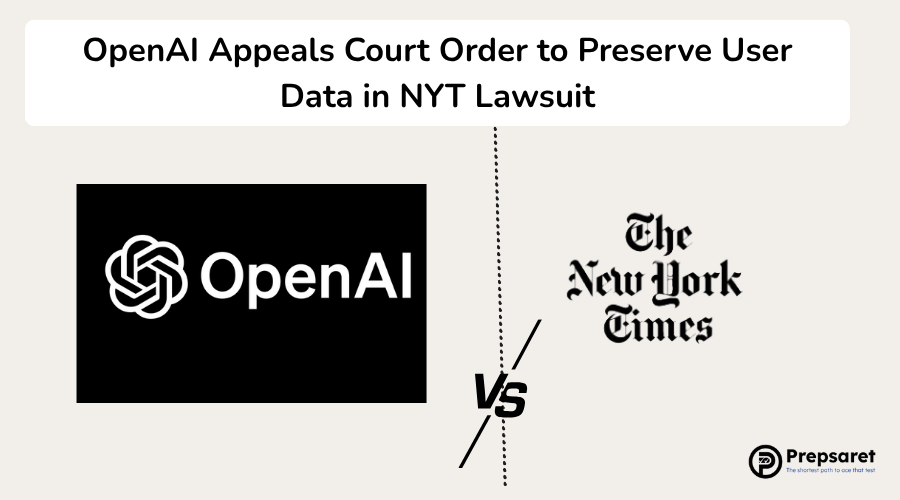Highlights:
- OpenAI is appealing a court order in a copyright case filed by The New York Times.
- The case requires OpenAI to preserve ChatGPT output data indefinitely, which the company argues compromises user privacy.
- OpenAI CEO Sam Altman has voiced strong opposition, calling the demand “inappropriate” and a bad precedent.
- The lawsuit centers around whether using copyrighted content to train generative AI models constitutes “fair use.”
OpenAI Challenges Court Order in Ongoing Copyright Battle with The New York Times
OpenAI is appealing a federal court’s order that mandates the company preserve all user-generated data from its AI model, ChatGPT, indefinitely.
The court ruling, which stems from a copyright lawsuit filed by The New York Times, requires OpenAI to retain all output log data, including deleted chats. OpenAI, however, argues that this order violates the company’s commitment to protecting user privacy, a core principle the company holds dear.
OpenAI’s Opposition to Data Preservation Order
In response to the court’s decision, OpenAI CEO Sam Altman expressed his strong opposition on the social media platform X (formerly Twitter), stating, “We will fight any demand that compromises our users’ privacy; this is a core principle.” Altman labeled the request from The New York Times as “inappropriate” and warned that it could set a concerning precedent for the future of data privacy.
The Lawsuit: The New York Times vs. OpenAI and Microsoft
The lawsuit began when The New York Times accused OpenAI and Microsoft of using its articles without permission to train large language models like ChatGPT. The newspaper alleges that this usage infringes on its copyrights and undermines the business model of original journalism.
The Times claims that, at times, ChatGPT produces near-verbatim text from its articles and bypasses its paywall through AI-generated summaries.
OpenAI’s Defense: Privacy and Overreach
In response to the legal action, OpenAI asserts that the requirement to preserve and segregate the output data is an overreach. The company contends that the move is unnecessary for the case at hand and further compromises user privacy. OpenAI’s Chief Operating Officer, Brad Lightcap, reiterated the company’s stance, stating, “We’re continuing to appeal this order so we can keep putting your trust and privacy first.”
Broader Implications for the AI and Media Industries
This legal battle highlights broader concerns surrounding the intersection of intellectual property, privacy, and the rapidly expanding field of generative AI. As courts become central battlegrounds for these issues, OpenAI’s challenge to the court’s order will likely have significant implications for both the AI industry and the media sector.
The outcome of this case could set important precedents on data usage, privacy rights, and the future of AI training. Both The New York Times and OpenAI are preparing for a prolonged legal fight, with each side claiming to defend critical values for the future of technology and journalism.
Also in the News:
Amazon to Test Humanoid Robots for Deliveries in AI Push
Trump-Musk Clash Sends Tesla Stock Plummeting, Erases $150 Billion in Value
Preparing to Advance Your Career?
Kickstart your career growth with Prepsaret! Whether you’re working toward PMP, CompTIA, or HR certifications, Prepsaret is your ultimate study platform. Gain access to premium resources, practice questions, and expert guidance to help you excel in your exams and propel your career forward!

